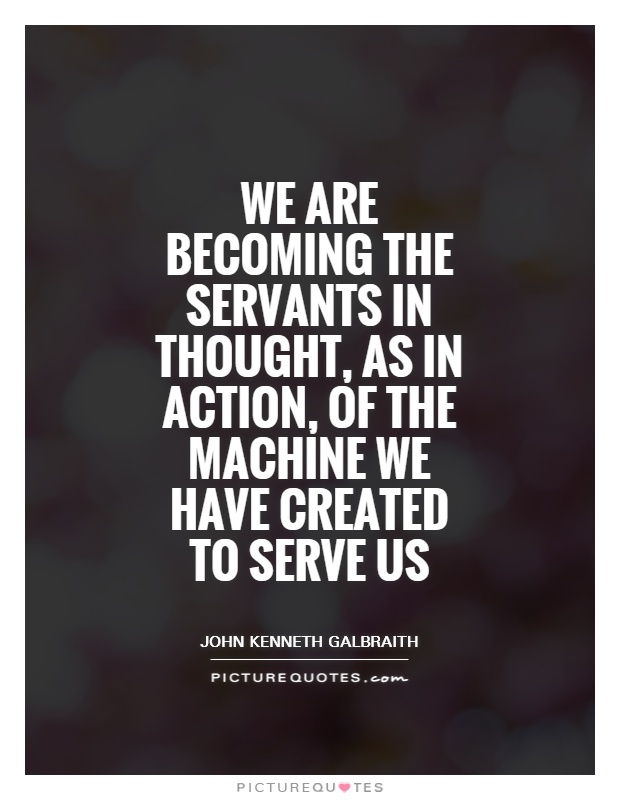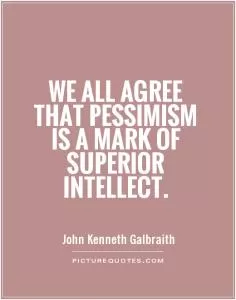We are becoming the servants in thought, as in action, of the machine we have created to serve us

We are becoming the servants in thought, as in action, of the machine we have created to serve us
John Kenneth Galbraith, a renowned economist and social commentator, once famously said, "We are becoming the servants in thought, as in action, of the machine we have created to serve us." This statement holds profound implications for our modern society, where technology and machines have become an integral part of our daily lives.Galbraith's words highlight the paradoxical relationship between humans and machines. While machines were initially created to serve and assist us in our tasks, they have now come to dominate and control our lives in ways we never imagined. From the moment we wake up to the sound of our alarm clocks to the time we go to bed with our smartphones by our side, we are constantly surrounded by machines that dictate our actions and thoughts.
One of the key ways in which machines have become our masters is through the influence they have on our thinking. With the rise of artificial intelligence and algorithms, machines are now able to predict our behavior, preferences, and even manipulate our decisions. This has led to a situation where we are increasingly relying on machines to make choices for us, whether it be in the form of personalized recommendations on social media or automated decision-making processes in the workplace.
Furthermore, the constant bombardment of information and stimuli from machines has also led to a decrease in our ability to think critically and independently. We have become so dependent on machines for information and entertainment that we have lost the ability to engage in deep, meaningful conversations or reflect on our own thoughts and beliefs.












 Friendship Quotes
Friendship Quotes Love Quotes
Love Quotes Life Quotes
Life Quotes Funny Quotes
Funny Quotes Motivational Quotes
Motivational Quotes Inspirational Quotes
Inspirational Quotes